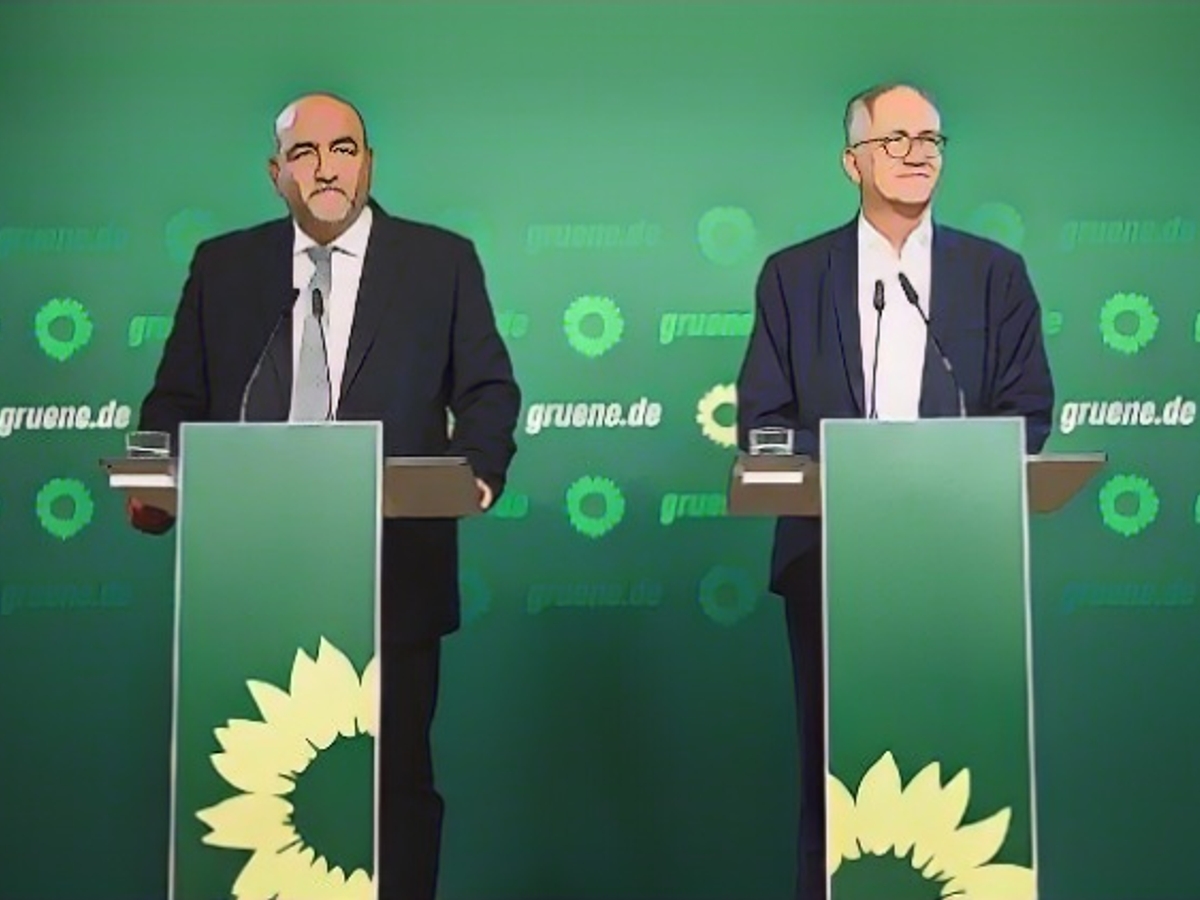The Greens are suddenly "dirty children" again
The Greens have been in a downward spiral for months. In Hesse, the CDU is now breaking up what was actually a well-functioning coalition. The decision is highly symbolic: the strategy pursued for years of becoming a centrist party is threatened with failure across the board.
They wanted to lead the state government in Hesse and now they are no longer even allowed to be junior partners. After ten years of black-green government, the Greens are out and Minister President Boris Rhein is entering into coalition negotiations with the SPD. Rhein refers to "greater overlaps" with the Social Democrats. Omid Nouripour, the federal Green Party chairman from Frankfurt, finds this "completely incomprehensible".
In fact, the alliance worked well and had acceptable satisfaction ratings up until election day. But that is not the point. The CDU/CSU - like the FDP and AfD - is pursuing a strict anti-green course. The SPD, the Left Party and the Wagenknecht movement are also keeping their distance. After decades of arriving in the party establishment, the Greens are once again the dirty children with whom the bourgeoisie do not want to play.
Nowhere does this hurt the party more than in Hesse, where the march through the institutions once really took off with the Green state minister Joschka Fischer. At that time, the party emancipated itself from many a malicious attribution from the business camp in this state, parts of which were deep in the black. Economics Minister Tarek Al-Wazir was the most popular politician in the state for a long time, consistently pushing through the government line against forest squatters from the Green Party's front organizations in the dispute over the deforestation of the Dannenröder Forest. However, his once good prospects of leading the government have dwindled since the beginning of the year with every new headline about Robert Habeck's alleged "heating hammer" and other conflicts in the federal government.
You can't get more centrist than Al-Wazir
The Greens fell from second to fourth place among the parties in Hesse and are now also losing their government participation because the CDU/CSU is convinced that it must distance itself from the Greens as much as possible, particularly on the issue of migration. This is dramatic for the Greens because their strategy of recent years has failed for the time being. The credo of former party leaders Habeck and Annalena Baerbock was that the Greens would succeed in achieving and implementing their climate goals with a consistent centrist policy. You can hardly get more centrist than Al-Wazir. But it wasn't enough because the Greens only generated headwinds at a national level.
In Berlin, Habeck had tried to do on a large scale what Al-Wazir had already succeeded in doing on a small scale: as Federal Minister of Economics, he not only wants to complete the transition to renewable energies, but also prove that the Greens have a better economic policy for Germany. In this way, they wanted to tap into new groups of voters so that they could one day become Federal Chancellor. And indeed, there was a phase in which even long-time CDU/CSU voters were able to gain a lot from Habeck in particular. Almost two years after taking office, however, there is little left of this initial enthusiasm. Germany's economy is shrinking, inflation is still high and there is no tangible upturn in sight.
Will the base continue to go along?
Habeck's justifications for the current situation - Russia's war of aggression against Ukraine, the gas dependency forced under Angela Merkel, sleepy infrastructure reforms - do not reassure people. Rather, many voters associate the alarming situation with the growing narrative of the Greens as a party of prohibition, as a party of elites far removed from life, as aloof drivers of migration. The political competitors, not least the CDU under Friedrich Merz, serve this image because they realize: Voters can be mobilized against the Greens. Seen in this light, Boris Rhine's swing towards the SPD is only logical.
The Green leadership is faced with the ruins of years of reconstruction work. For the way out of the crisis, they are relying above all on the principle of hope - that voters will realize by 2025 that the Greens' participation in the federal government was a good thing. And they want to be more of a centrist party than ever before, while the Greens' base is in turmoil over the many compromises on the environment and migration. In two weeks' time, the federal party conference in Karlsruhe - the first federal state with a Green Minister President, and the only one for a long time - will show whether the new "dirty children" will move closer together under the pressure of exclusion or whether discontent will break out.
The Greens faced a significant setback in Hesse, as Alliance 90/The Greens' Tarek Al-Wazir, known for his centrist approach, saw his prospects of leading the government diminish. This trend is attributed to the CDU's decision to distance itself from the Greens, viewing them as the "dirty children" with whom the bourgeoisie do not want to play.
Robert Habeck and Annalena Baerbock, former party leaders who advocated for the Greens to achieve their climate goals with a consistent centrist policy, have seen their strategy falter. Despite Habeck's efforts as Federal Minister of Economics to prove the Greens' economic prowess, their image as a party of elites and prohibitionists has lingered.
The Green leadership is now grappling with the aftermath of years of reconstruction work, seeking to unite its base amidst discontent over environmental and migration compromises. The upcoming federal party conference in Karlsruhe will serve as a litmus test, revealing whether unity under exclusionary pressure or discontent will manifest.
Following the state elections in Hesse, Boris Rhine, the Minister President, engaged in coalition negotiations with the SPD, citing greater overlaps with the Social Democrats. Omid Nouripour, the federal Green Party chairman from Frankfurt, found this shift completely incomprehensible.
Source: www.ntv.de








